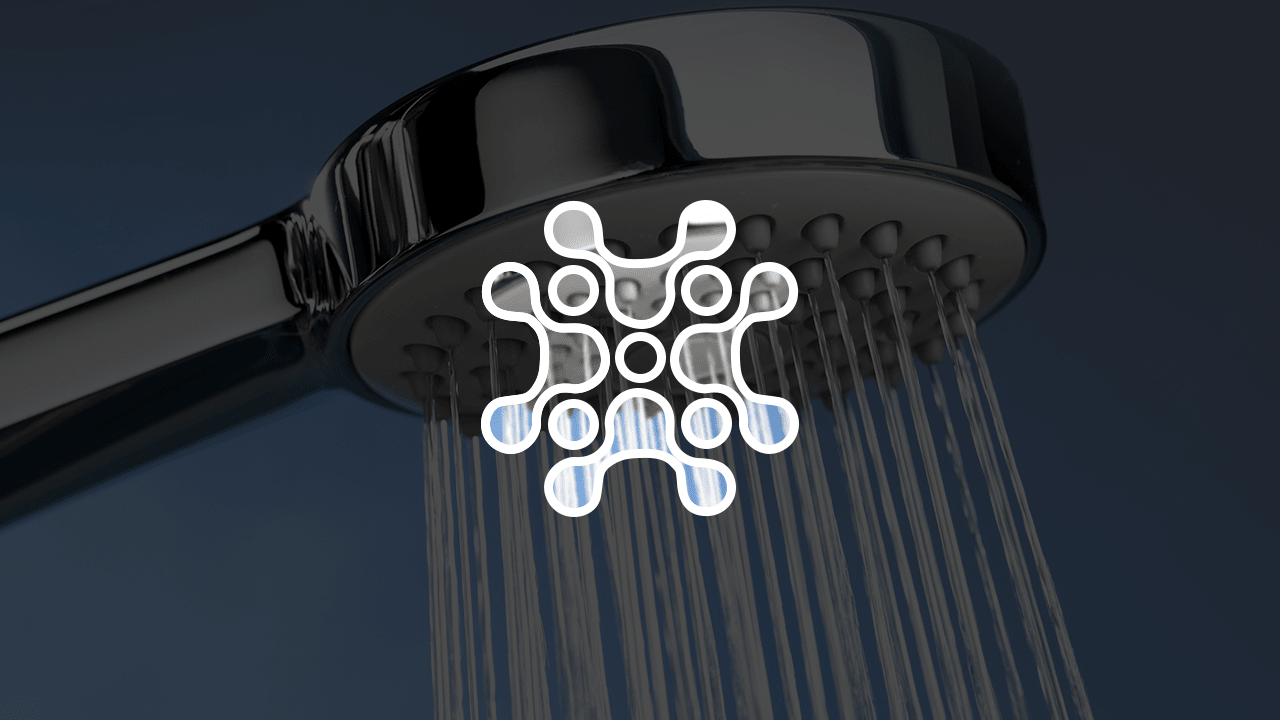L'eau est une ressource essentielle dont nous dépendons pour boire, cuisiner et effectuer diverses activités domestiques. Cependant, il arrive parfois que notre eau dégage une désagréable odeur de soufre. Cette odeur distincte, qui rappelle celle des œufs pourris, peut être très dérangeante. Dans cet article, nous examinerons les causes de l'odeur de soufre dans l'eau, les risques potentiels pour la santé qui y sont associés, l'origine possible de cette odeur et la manière de l'éliminer efficacement.
Quelles sont les causes de l'odeur de soufre dans l'eau ?
La présence d'une odeur de soufre dans l'eau est principalement attribuée à la présence de sulfure d'hydrogène. Le sulfure d'hydrogène est un gaz incolore qui peut être produit naturellement dans les eaux souterraines, en particulier dans les régions où la teneur en soufre du sol est élevée. Ce gaz se forme généralement lorsque la matière organique se décompose et réagit avec les bactéries sulfureuses ou sulfato-réductrices présentes dans l'eau. Même en faible concentration, le sulfure d'hydrogène peut créer une odeur perceptible et désagréable.
Risques pour la santé liés à l'odeur de soufre dans l'eau :
Bien que l'odeur de soufre dans l'eau puisse être dérangeante, il est important de noter que la présence de sulfure d'hydrogène ne pose pas nécessairement un risque direct pour la santé. En fait, l'Agence de protection de l'environnement (EPA) n'a pas fixé de norme spécifique pour le sulfure d'hydrogène dans l'eau potable en raison de sa nature esthétique. Cependant, une exposition prolongée à de fortes concentrations de sulfure d'hydrogène peut provoquer des maux de tête, des nausées et d'autres symptômes désagréables. En outre, la présence de sulfure d'hydrogène peut indiquer l'existence possible d'autres contaminants nocifs dans l'eau, ce qui doit être pris en compte pour la sécurité globale de l'approvisionnement en eau.
Origine possible Odeur de soufre dans l'eau :
Si vous détectez une odeur de soufre dans votre eau, il est essentiel d'identifier la source du problème. L'une des sources les plus courantes est un puits privé. Les puits contiennent souvent des bactéries sulfureuses, qui produisent du sulfure d'hydrogène en décomposant les matières organiques. Une autre source potentielle est le chauffe-eau. L'eau chaude peut favoriser la libération de sulfure d'hydrogène, ce qui renforce l'odeur de soufre. Il est également possible que l'odeur de soufre provienne du système de plomberie ou de l'approvisionnement en eau de la ville, bien que ces cas soient moins probables.
Comment éliminer l'odeur de soufre dans l'eau :
Pour éliminer l'odeur de soufre dans l'eau, plusieurs options sont possibles :
- Identifier et traiter la source : Si vous disposez d'un puits privé, il est recommandé d'effectuer une analyse de l'eau afin de déterminer la cause exacte de l'odeur de soufre. Cette analyse permettra d'identifier la présence de bactéries sulfureuses, de sulfure d'hydrogène ou d'autres contaminants. Le traitement de l'eau de puits avec du chlore, du peroxyde d'hydrogène ou d'autres désinfectants peut aider à éliminer les bactéries sulfureuses. La consultation d'un professionnel ou d'un spécialiste du traitement de l'eau peut fournir des conseils sur la méthode de traitement appropriée en fonction des résultats de l'analyse.
- Installez un filtre à eau : Un filtre à eau, spécialement conçu pour cibler le sulfure d'hydrogène, peut éliminer efficacement l'odeur de soufre de l'eau. Les filtres à charbon actif, les filtres oxydants ou les filtres à média spécialisés sont couramment utilisés à cette fin. Sur le site web d'Ecosoft, vous pouvez trouver le filtre qui convient à vos besoins ou, si vous n'êtes pas sûr de ce qui fonctionnera le mieux pour vous, nous avons un outil spécial, Water Solution Wizard, qui vous aidera à sélectionner une solution optimale. Ces filtres peuvent être installés au point d'entrée ou à des points d'utilisation spécifiques, tels que les robinets ou les douches. Un entretien régulier et le remplacement du filtre sont essentiels pour garantir l'efficacité continue du filtre.
- Rincez le système : Occasionnellement, le rinçage du système de plomberie peut aider à réduire l'odeur de soufre. Pour ce faire, faites couler l'eau de tous les robinets et appareils sanitaires pendant quelques minutes jusqu'à ce que l'odeur diminue. Le rinçage du système permet d'éliminer l'eau stagnante qui peut contenir du sulfure d'hydrogène et de rafraîchir l'approvisionnement en eau.
L'odeur de soufre dans l'eau, qui rappelle celle des œufs pourris, est due à la présence de sulfure d'hydrogène. Bien qu'elle ne présente pas de risque direct pour la santé, l'odeur peut être désagréable et indiquer la présence d'autres contaminants. Si vous constatez une odeur de soufre dans votre eau, il est important d'identifier la source du problème. Les puits privés, les chauffe-eau et les systèmes de plomberie sont des coupables courants. En traitant la source, en installant un filtre à eau ou en rinçant le système, vous pouvez éliminer efficacement l'odeur de soufre et profiter d'une eau propre et sans odeur dans votre vie quotidienne.
Faqs
Comment puis-je me débarrasser de l'odeur de soufre dans mon eau ?
Il existe plusieurs méthodes pour éliminer l'odeur de soufre de l'eau. Une solution courante consiste à utiliser des filtres à charbon actif, qui peuvent absorber et neutraliser efficacement le sulfure d'hydrogène. En outre, les systèmes d'aération peuvent introduire de l'oxygène dans l'eau, ce qui contribue à réduire la présence du gaz. Des méthodes de chloration ou d'oxydation chimique peuvent également être employées pour éliminer l'odeur de soufre. Il est conseillé de consulter un professionnel du traitement de l'eau pour déterminer la méthode la plus adaptée à votre situation spécifique.
Peut-on éviter l'odeur de soufre dans l'eau ?
La prévention de l'odeur de soufre dans l'eau dépend de la source spécifique du problème. Dans le cas de l'eau de puits, il est essentiel d'entretenir et de surveiller régulièrement le système de puits. Une ventilation et une désinfection adéquates du puits peuvent contribuer à minimiser la croissance des bactéries productrices de soufre. En outre, la résolution des problèmes de plomberie, tels que la corrosion des tuyaux ou des chauffe-eau, peut également prévenir l'apparition d'une odeur de soufre. Une analyse régulière de l'eau et un traitement, si nécessaire, peuvent aider à maintenir la qualité de l'eau et à prévenir la réapparition de l'odeur de soufre.
L'odeur de soufre dans l'eau est-elle nocive ?
Dans la plupart des cas, l'odeur de soufre dans l'eau n'est pas nocive pour la santé humaine. Cependant, elle peut être désagréable et affecter le goût de l'eau potable, la rendant moins désirable. En outre, des niveaux élevés de sulfure d'hydrogène peuvent être toxiques et présenter un risque s'ils sont inhalés en grandes quantités. Il est recommandé de s'attaquer au problème de l'odeur de soufre dans l'eau afin d'améliorer sa qualité et d'éliminer tout problème de santé potentiel.
Qu'est-ce qui provoque une odeur de soufre dans l'eau ?
La présence d'une odeur de soufre dans l'eau est généralement due à la présence de sulfure d'hydrogène. Ce gaz peut être produit lors de la décomposition de la matière organique, en particulier dans les environnements à faible teneur en oxygène tels que les eaux souterraines et les puits. Les bactéries qui se développent dans ces conditions libèrent du sulfure d'hydrogène comme sous-produit, ce qui entraîne l'odeur caractéristique d'œuf pourri dans l'eau.








